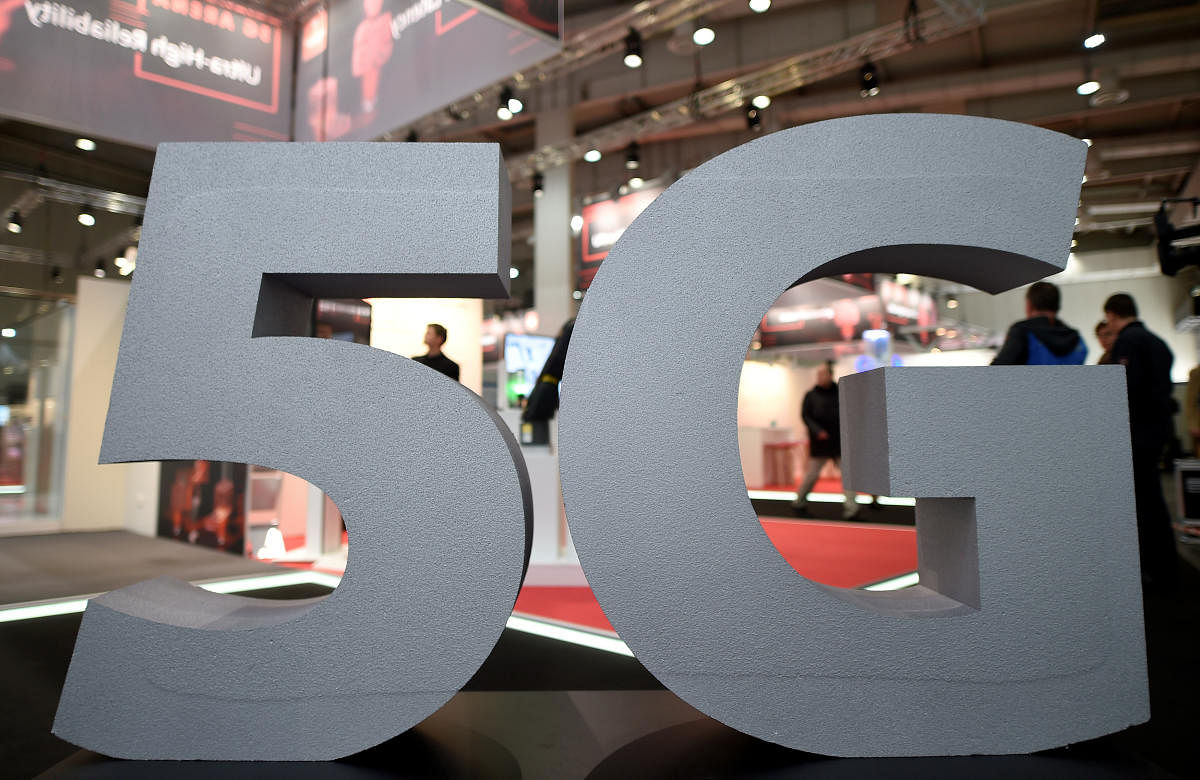
The Digital Communication Commission (DCC) is likely to discuss regulator Trai's recommendation on the next round of spectrum auction, which includes radio waves for 5G services, in its meeting on Thursday, according to sources.
The telecom regulator has recommended the auction of about 8,644 MHz of frequencies across eight signal bands, including in 700 Mhz, 800 Mhz, 3.3-3.4 gigahertz (GHz), 3.4-3.6 GHz etc, at an estimated base price of Rs 4.9 lakh crore. The radio waves include frequencies for 5G services.
The frequencies in higher bands like 3.5 GHz are considered suitable for rolling out the next generation services. Trai has recommended a pan-India base price of Rs 492 crore per megahertz for 5G radiowaves in 3.5 GHz band.
The commission may also discuss modalities proposed for 5G trials so that companies can discover and demonstrate used cases for the next generation services in India, an official said.
Industry body COAI has exhorted the telecom department to recognise the significance of 28 GHz and 26 GHz spectrum bands for the deployment of futuristic 5G services and seek the sector regulator's opinion on its pricing for early adoption.
Telecom players expect to start rolling out 5G services once the spectrum is allocated to them.
The inter-ministerial body, earlier called as the Telecom Commission, may also discuss projects related to the rollout of mobile network in Naxal-affected states, augmentation of satellite bandwidth in Andaman and Nicobar Island from 2 gigabytes per second to 4 Gbps, and new telecom licence for operations at district level etc, the official said.
The DCC may discuss revised estimates for rolling out 4,072 mobile towers in 10 Naxal-affected states.
Of the 4,072 mobile towers, 1,054 will be installed in Jharkhand, 1,028 in Chhattisgarh, 483 in Odisha, 429 in Andhra Pradesh, 412 in Bihar, 207 in West Bengal, 179 in Uttar Pradesh, 136 in Maharashtra, 118 in Telangana and 26 in Madhya Pradesh.
The DCC may discuss a proposal to provide relief to state-run telecom firms BSNL and MTNL. Both the companies have sought spectrum for 4G services through equity infusion from the government.
BSNL, which has the lowest debt of Rs 14,000 crore among all telecom operators, has sought 4G spectrum across India through equity infusion of Rs 7,000 crore.
The PSUs have been also ailing because of high revenue-to-debt ratio due to a high number of government employees that were transferred by the Department of Telecom to them at the time of their formation. BSNL has 1.76 lakh employees across India and MTNL has 22,000 employees.